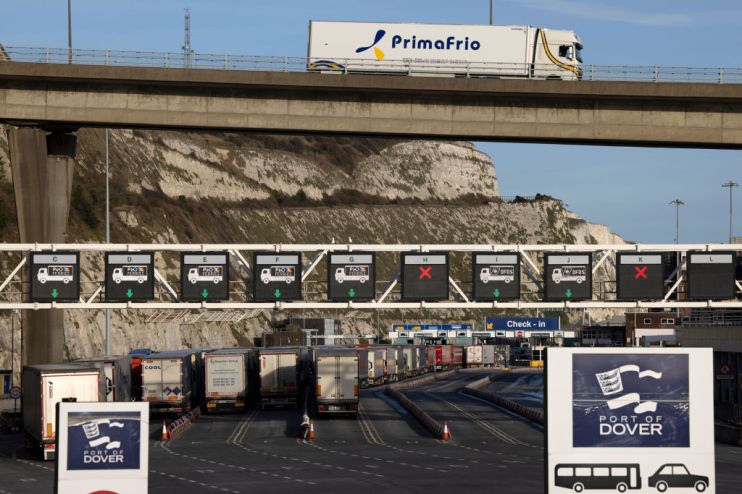Brexit: Depleted UK-EU trade won’t recover until summer, says lorry lobby

The collapse of post-Brexit trade with the EU will last until the summer or longer as businesses still struggle to navigate new red tape, according to the UK’s haulage body.
New figures on Friday revealed that UK exports to the EU had plummeted by 40 per cent since the end of the transition period on 31 December, with businesses finding the new customs paperwork and systems difficult to navigate.
This includes a £5.6bn drop in British exports to the EU in January alone.
An Institute of Directors (IoD) survey on Thursday revealed that one-in-five businesses that last year traded with EU nations had completely cut ties with the bloc this year.
The EU imposed complete border controls on goods entering the bloc from the UK on 1 January when the Brexit transition period ended, however Boris Johnson opted to have a transition period for goods coming the other way.
De-facto Brexit minister Lord David Frost moved to extend this transition period and postpone new checks on food and agriculture goods coming to the UK from the EU for six months this week in a bid to avoid the kind of disruptions British exporters have faced.
Road Haulage Association head of public affairs Rod McKenzie told The Observer that UK exports to the EU will not recover until summer at the earliest, with the UK suffering from a lack of customs agents.
The industry estimated that the UK needed 30,000 customs agents, private operators that help with customs procedures, operating post-Brexit and that the country has fallen well short of the target.
“Judging by our own experience of customs agents, they are swamped with calls and turning away business, which is ridiculous when we have had four years to sort this out,” he said.
It comes as Irish foreign minister Simon Coveney told The Times yesterday that the UK’s move to unilaterally postpone checks on goods travelling from Great Britain to Northern Ireland was “extremely unhelpful”.
EU nations have now agreed to launch legal action against the UK in the European Courts of Justice, with officials calling the UK’s decision a breach of the Brexit Withdrawal Agreement.
“It’s difficult to continue to negotiate with a partner when you have written agreements backed up by verbal agreements that get cast aside when Westminster politics determines that a new direction is necessary,” Coveney said.
“This move this week by the British government will force a much more rigid legalistic approach to negotiation because there simply isn’t the relationship and the trust there to find a way forward.”